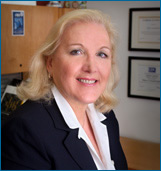Careers at CDC
CDC Health Economists
It wouldn′t seem to be the best way to endear yourself to a crowd, telling them that—at least in some circumstances, and by some criteria—they′d be better off dead.

When Martin Meltzer, MS, PhD, speaks to the public about the economics of pandemic flu, he likes to display a rather disquieting table from a study he lead-authored in 1999. It asks a simple question: when it comes to setting vaccination priorities, who should get the first jab?
The answer, by Meltzer′s calculations: if you wish to reduce the risk of death, then you will first vaccinate high-risk seniors. However, if you want to reduce the total number of deaths, irrespective of age, you would first vaccinate high-risk adults. If your goal is to maximize economic returns to vaccination, then the high-risk adults are vaccinated first (they are still producing income), followed by high-risk children. And those seniors? They would come last.
Meltzer frequently gives this talk before groups of retirees, so it′s no shock that he′s endured his share of outrage. But then he puts the question another way: Pretend there′s just one dose of vaccine. Should it go to you or your grandchild?
In that case, the answer tends to be unanimous: The grandchild should be the priority. Society makes these sorts of relative valuations all the time, Meltzer says—the economist merely makes such decisions explicit.
Health economists don′t choose who should be treated and who is passed over. But they do what might be the next hardest thing: they force policymakers to confront, in the starkest possible terms, the possible consequences of their choices. Economists call it the "opportunity cost," or the benefits foregone by choosing a given option.
As Meltzer, a senior health economist in CCID, puts it: "We force people to confront questions they′d rather skip over."
A New Discipline for CDC
August marks the 10th anniversary of the Steven M. Teutsch Post-Doctoral Fellowship in Prevention Effectiveness Methods, which has ushered in a large proportion of CDC′s economist staff. That decade has seen the number of doctorate-level health economists at the agency rise from just a handful to about 60, not including a larger number of Masters-level economists.

The need for health economists at CDC has grown in tandem with the cost of health care, notes Vilma Carande-Kulis, MS, PhD, senior advisor and economist in the Office of the Chief Science Officer. "There′s a heightened awareness that resources are scarce, and you have to choose [among interventions]."
As costs have grown, so has the interest in prevention, and economic analyses can help justify prevention programs, Carande-Kulis says. There is also a political benefit to calculating the economic burden of disease: "When you go to Congress, you can tell them a disease will affect a hundred thousand or a million people. But telling them that it will produce losses in the order of $150 billion helps to strengthen the argument."

Though it′s become common for US policymakers to ask about the cost-effectiveness of interventions, it doesn′t always impact the final decision, notes Donatus Ekwueme, PhD, senior health economist at the Division of Cancer Prevention and Control at the NCCDPHP. By contrast, cost-effectiveness plays a much larger role in Western European countries with national health plans, Ekwueme says.
Hard Truths of Economic Impact
One reason why cost-effectiveness may be slow to catch on here is the hard truths that these studies reveal. Prevention may be an appealing concept, but Meltzer says it is not always a superior approach to treatment, at least economically. "With treatment, you only treat the sick," notes Meltzer. "With prevention, you may give the intervention to someone who may never get it over their lifetime. The cost of a low-probability, high-cost event might be higher than the cost of the intervention."

Scott Grosse, PhD, senior health economist with NCBDDD, put it another way in a recent issue the Journal of Pediatrics: "Benjamin Franklin famously said that an ounce of prevention is worth a pound of cure, but he didn′t say that it is necessarily less expensive."
Health advocates, Grosse says, frequently join two different concepts: cost savings and cost-effectiveness. A cost-saving intervention results both in better health outcomes and lower total costs. A cost-effective intervention raises total costs but is cheaper than alternative interventions.
Fusing these two ideas can be politically expedient. It′s hard to argue against a cost-saving, win-win intervention. But to say an intervention is merely cost-effective prompts the question: how much are you willing to spend to achieve a given outcome? "Economics is not primarily about saving money," Grosse says. "Rather, it is about obtaining good value for the expenditure of scarce resources of time and money."
A recent review from the Partnership for Prevention found that only one-fifth of recommended clinical preventive services are cost-saving, Grosse notes. The most expensive interventions cost between $165,000 and $450,000 per life year saved (actually, it′s "quality-adjusted life year" saved, or years adjusted for degradations in quality of life).
"If money could be reallocated to promote more cost-effective interventions such as screening for colorectal cancer we could save more lives at little additional cost," Grosse says.
Areas of Research
Economists throughout the CDC are estimating the burden of disease and the effectiveness of prevention measures. They′re also promoting public health economics to external partners. Here′s a sampling of the work being done by just a handful of CDC economists:
Meltzer has helped develop free software, called FluAid, that assists public health officials at any level in estimating the pandemic flu impact in their jurisdiction; it′s been used by public health officials with jurisdiction over a billion people. A follow-up program, Flu Surge, helps hospital administrators predict their capacity to handle an influenza pandemic.
Carande-Kulis recently lead-authored a paper urging health economics to broaden its research agenda to include such questions as how private sector market forces affect the production and delivery of health protection services and individual behavior in response to health promotion interventions. Carande-Kulis is also working in collaboration with NIOSH and NCHM on guidelines for businesses aiming to demonstrate a return on investment for providing health services for their employees.
Ekwueme studies the economic ramifications of cancer screening programs. Much of his attention now is focused on estimating the economics of the National Breast and Cervical Cancer Early Detection Program, a federally-funded cancer screening program that provides support and assistance to uninsured and underserved low-income women 18-64 years for cervical screening, and 40-64 years for breast screening and diagnostic services.
Grosse researches the economic cost of birth defects, genetic disorders, and developmental disabilities. He recently led a study finding that folic acid has been even more beneficial than expected in reducing costs associated with spina bifida and anencephaly. CDC is working to help other countries begin fortifying their food, Grosse says. Grosse also studies the health impacts of newborn screening programs and coordinated the preparation of a 2004 CDC report on newborn screening for cystic fibrosis that contributed to decisions by many states to start screening for that disorder.

Margaret Coleman, PhD, a health economist at NCIRD, studies the economics of vaccination. She recently found that a Rochester, NY, adult community outreach vaccination program resulted in a cost-savings to Medicare. She also studies pricing and sales trends in vaccine markets, and the potential impact on schools and doctors′ offices of mandating universal flu vaccination for children. (For Coleman, health economics is a second career. She started her graduate studies while still a technician at Bell Atlantic (now Verizon) in New York City.)
Sandra Decker, PhD, senior service fellow at NCHS, focuses largely on Medicare and Medicaid policy. She recently found that Medicaid patients in states that raised their Medicaid reimbursement rates for physicians are more likely to be treated by office-based doctors and less likely to be in the emergency room, perhaps reducing ER overcrowding. "A lot of people say state policy is like 50 different experiments," Decker says. "NCHS collects data in every state, so it′s a great opportunity to study the effects of policy across states."

CDC has built a cadre of economists who have made significant scientific contributions to public health research. Peer review publications by CDC economists have reached near 300 in 2006 from a couple in 1992. Among many topics, CDC economists have published on economic burden of disease and injury, effectiveness and economic efficiency of interventions, market conditions for CDC products and services, and socioeconomic factors affecting health disparities.
CDC formed the Health Economics Research Group (HERG) in 2001. HERG members are important players in the scientific community including the international Health Economics Association and the American Society of Health Economists.
Get email updates
To receive email updates about this page, enter your email address:
Contact Us:
- Centers for Disease Control and Prevention
1600 Clifton Rd
Atlanta, GA 30333 - 800-CDC-INFO
(800-232-4636)
TTY: (888) 232-6348
24 Hours/Every Day - cdcinfo@cdc.gov

